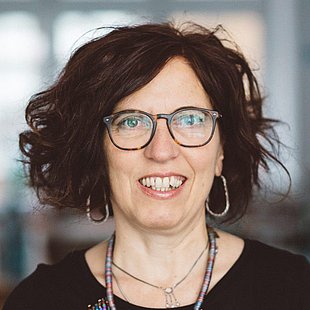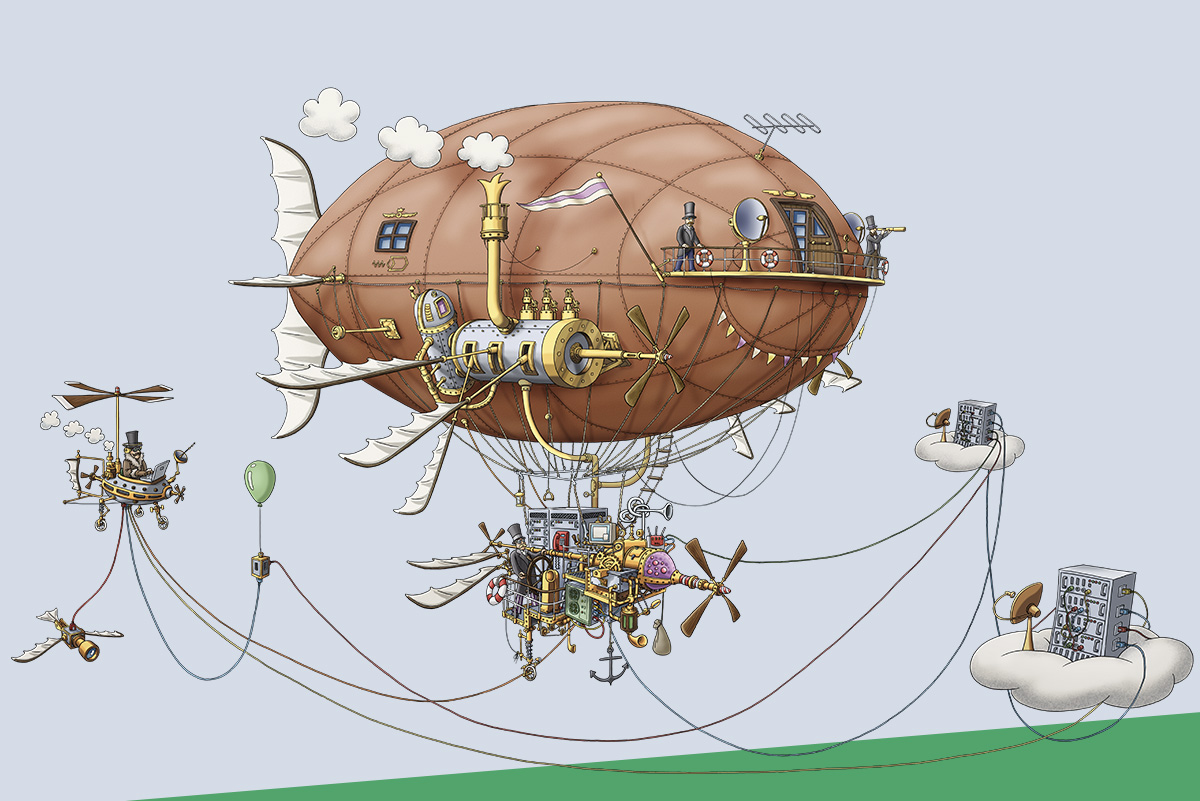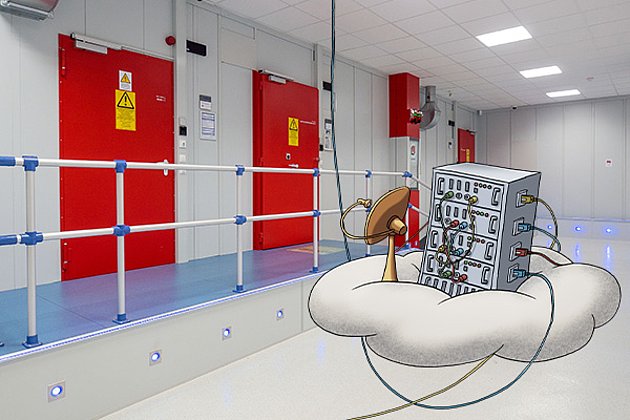Open‑edX® on K3s –
Lightweight managed Kubernetes from Flying Circus
Abstract‑Technology has created an German UDS an Open‑edX® instance on a K3s cluster operated by Flying Circus. The solution combines NixOS-based infrastructure-as-code, automatic scaling and complete digital sovereignty – all in a German data centre with guaranteed SLAs.
About Abstract-Technology
Abstract-Technology GmbH is a leading European provider of modern learning technologies and supports companies, organisations and educational institutions worldwide in the selection, implementation and customisation of powerful learning management systems (LMS). As a specialist in open-source technologies, particularly those based on the Open edX® platform, the company develops intuitive user interfaces, seamless system integrations, AI-supported tools and mobile learning solutions. Its services range from compliance training and upskilling/reskilling to product training and include the design of future-proof, flexible and scalable e-learning platforms. The focus is on individual customisation through the seamless integration of third-party solutions. These include tools such as BigBlueButton for virtual classrooms, Turnitin for plagiarism detection, SMOWL for supervised online exams, and UbiCast for video creation and streaming, supplemented by other specific applications. In addition, Abstract Technology offers comprehensive support, flexible training for employees and course authors, and multilingual support in English, German, Italian, and Spanish.
The challenge:
Abstract-Technology GmbH was looking for a technology partner to implement a flexible and scalable solution for a project with its customer German UDS. The German University of Digital Science (German UDS) is a state-recognised digital university in Potsdam that focuses on the interdisciplinary field of digital science. In addition to MOOCs (Massive Open Online Courses), the university also offers master's and MBA programmes and micro-credentials, which are made available to paying students via a dedicated microsite. German UDS's programmes are aimed at learners and scientists who want to help shape the digital transformation.
Founded by Professors Mike Friedrichsen and Christoph Meinel, German UDS was recognised in Germany in February 2025. Teaching and research began on 1 April 2025 with ten professors, including AI expert Feiyu Zu. The university emphasises the need for a strategic reorientation of digital education in Germany.
As early as 2024, those responsible for the German UDS project agreed that data protection, digital sovereignty and a server location in Germany were essential for the project's success. In addition, there were clear ideas for a managed service with guaranteed service levels and fast response times that the hosting service provider should fulfil.
The starting point:
Abstract-Technology is a partner for the implementation of the Open edX® platform, which was developed specifically for MOOCs and large numbers of users. It can be easily scaled from a few hundred learners to millions of users worldwide and can be seamlessly integrated into existing infrastructures and systems such as CRM, ERP or SSO. The technological solution therefore needed to be able to handle a highly dynamic load profile, including peak loads and idle phases, without being hosted by a hyperscaler.
In order to meet the requirements of German UDS, Abstract-Technology specifically sought a provider for a partnership to realise this ambitious and highly professional project. As a long-standing and active member of the Open edX® community, Abstract Technology was also looking for a service provider who is also an active member of the open source community and thus shares the same values and views. A key project requirement was that individual configuration errors should not jeopardise the entire system, which is ensured by automated testing during deployment. The requirements for the reproducibility of builds and environments had to be guaranteed in order to minimise problems such as those experienced with other cloud providers. To overcome these challenges, Abstract Technology sought a service provider that could offer the following:
- Automated and declarative infrastructure management: A way to automatically provision, scale and restore infrastructure and applications by defining the desired state.
- Performance-based performance with a solution that optimally adapts resources to the current load, thereby saving costs.
- Relief from operational tasks: Outsourcing Kubernetes management to allow the team to focus on further developing the Open edX® platform.
For me, the German UDS project is a real success story, which I had the privilege of accompanying from the very beginning as Senior Project Manager. It impressively demonstrates how versatile, flexible and forward-looking the Open edX® platform is – and that open source in academic education has long been more than just an alternative, but rather a strategic necessity. I am very much looking forward to the next phase, in which we will be implementing exciting new features such as an AI chatbot and AI-supported authoring tools. For me, the collaboration with Flying Circus represents a genuine partnership characterised by trust, reliability and a shared understanding of quality and digital responsibility.
The solution:
The decision to use a NixOS-based cloud platform in combination with a managed Kubernetes service, as offered by Flying Circus, proved to be the right solution. This combination meets the demanding requirements and ensures a powerful, scalable basis for the reliable operation of German UDS's Open edX® platform. The Flying Circus operations team loves NixOS and running applications natively on the operating system. However, this specific requirement profile needed a different solution. That's why the team chose Kubernetes-certified software to meet the dynamic and future load requirements of German UDS. During the evaluation process, however, it quickly became apparent that a K8s solution would entail too much overhead for this scenario and require many functions. We opted for a K3s cluster that is optimised for professional requirements. This allows pods on Kubernetes worker nodes to scale automatically. The basis for this is CPU, memory or user-defined metrics that are defined for scaling. Resources can thus be added or removed flexibly as needed. The cluster thus fulfils the elastic scaling required in the requirements profile. "K3s is often described as 'Homelab Kubernetes', but this is factually incorrect. With the right configuration, such as an external MySQL or Postgres database, you get a fully-fledged and lightweight Kubernetes cluster if you only need a specific subset of features," says Christian Zagrodnick, who oversaw the technical implementation in the AppOps team.
As part of the EdTech scene, we are actively shaping the digital transformation of learning by developing adaptive learning solutions that intelligently combine technology, didactics and user experience. Our Berlin-based company combines digital innovation, strategic analysis, software development and efficient project management – with a clear commitment to open source, artificial intelligence and digital sovereignty. The collaboration with Flying Circus as our German hosting partner is the ideal complement for us: we share the same values in terms of security, openness and digital independence. Working with such a dynamic and reliable team means quality, stability and trust for us – both in our development and for our customers.
The result:
Since April 2024, the Managed Kubernetes Cluster with Open edX® for German UDS has been running smoothly on our cloud platform. Sounds unspectacular? That's exactly the point: if no one notices anything, we're doing our job right!
For many people, application operation feels a bit like electricity from a socket or clean water from a tap: natural, reliable and always available. But this reliability requires intensive work in the background. Every day, our team ensures that the infrastructure and the Flying Circus platform run smoothly. Updates, security patches, deployments and scaling in the background function correctly, and close communication with the developers at Abstract Technology ensures the smooth operation of the customised solution. The flat-rate billing model for Flying Circus services ensures that this work takes place continuously and that no cost arguments are put forward to prevent ongoing modernisation. Security-related issues are proactively addressed through collaborative efforts, enabling risks to be identified and eliminated at an early stage. K3s, correctly configured on our platform, forms a dynamic and agile control centre. It benefits from a high degree of automation through Infrastructure as Code (IaC), implemented backups and other advantages of the Flying Circus platform. All these points ensure that Abstract Technology has a stable and secure learning environment for German UDS at all times.






